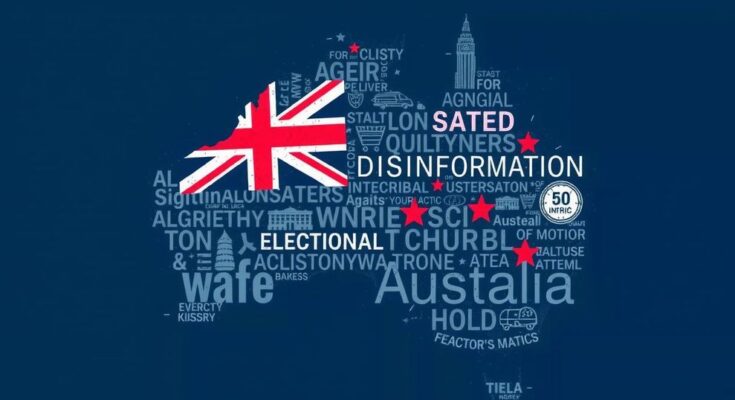Deepfake technology threatens democratic processes, as evidenced during recent US elections where fabricated videos misled the public. With low detection rates among Australians, there are significant vulnerabilities as the nation approaches its electoral cycle. Recent examples from both US and Australian contexts highlight the serious risk posed by deepfakes, necessitating increased public awareness and protective measures.
In the wake of recent elections in the United States, particularly following Donald Trump’s re-election, there is significant concern regarding the impact of disinformation and deepfake technology on democratic processes. Deepfake content, which is created with artificial intelligence, misrepresents individuals in fabricated scenarios, thus misleading the public. During the electoral campaign, numerous deepfake videos were circulated that falsely depicted Kamala Harris, with some even suggesting illicit actions.
As highlighted by Microsoft, Russian creators are utilizing AI to produce these misleading deepfakes, presenting serious threats to the credibility of information disseminated during elections. The implications of such technology could extend to Australia, where upcoming elections might be similarly affected. While capturing public attention, images and videos possess a persuasive power that makes identifying deceit increasingly difficult. In fact, studies reveal that average individuals can only recognize deepfake images about 50% of the time, with video recognition rates plummeting to approximately 24.5%.
The prevalence of deepfakes on social media poses an alarming threat, particularly as Australians demonstrate challenges in distinguishing authentic content from fabricated material. Critics, including former Home Affairs Minister Clare O’Neil, have underscored that the very foundation of Australia’s democracy is at risk due to technological advancements in misinformation. Instances such as Senator David Pocock’s demonstration of political deepfakes have further illuminated potential dangers in the realm of Australian politics, signifying that the repercussions of this technology are not limited to mere entertainment.
Moreover, deepfake content not only threatens to undermine electoral integrity but also fosters distrust in news and media outlets. The susceptibility of different demographics to deepfakes varies, with studies indicating that older individuals may struggle more with accurate detection. This is concerning given the tendency for social media algorithms to promote content that aligns with users’ existing beliefs, thus creating ‘echo chambers’ and increasing the likelihood of sharing misleading information. To combat these challenges, fostering public awareness around deepfakes may serve as a critical defense strategy.
Ultimately, the rise of deepfakes signifies more than a technological challenge; it represents a fundamental threat to the principles underpinning free and fair elections. Immediate action and vigilance are necessary to ensure the integrity of democratic practices—not just in Australia, but globally. The ongoing discourse surrounding AI and disinformation demands urgent attention as democratic values face unprecedented tests in the digital age.
The emergence of deepfake technology has rapidly evolved alongside advances in artificial intelligence, enabling the creation of hyper-realistic videos and images. During the recent US elections, misinformation campaigns that employed deepfakes played a significant role, misleading voters and influencing public perception. This scenario raises alarm about the potential for similar occurrences in other democracies, such as Australia, where elections could be similarly manipulated by these malicious tactics. Given the challenges of detecting deepfakes, public awareness and robust defense mechanisms become essential for maintaining electoral integrity.
In conclusion, the increasing sophistication of deepfake technology demands immediate attention within political discourse. As demonstrated during the recent US elections, disinformation generated through deepfakes poses a substantial risk to democratic processes. Australia must acknowledge the potential for similar threats and act decisively to safeguard the trustworthiness of its electoral systems through public education and the advancement of detection methods. Understanding the implications of deepfakes is crucial for preserving the tenets of democracy in an increasingly digital world.
Original Source: theconversation.com




